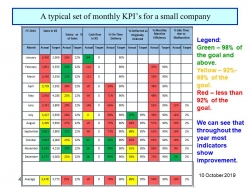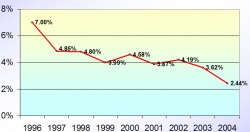Meir, the star, is teaching me about life
When I was young, I managed the kibbutz field crops section. Meir (not his real name) was one of the main workers, a serious professional. He knew all the tasks and could do any of them equally well. But he didn't want to perform just any task. He chose what he wanted to do and what he didn't, as well as how he performed it.
Of course, his behavior had a negative effect on the other workers, who also tried to push the occasional boundary and would ask, "How come Meir can and we can't?"
I felt trapped. Deep inside, I knew the right thing to do would be to let go of Meir, but I didn't dare.
I didn't have enough experienced, professional workers and I was afraid to be without him.
The lesson I learned in the cotton fields stayed with me during all my future management positions. I was careful to ensure that my support of the "stars" didn't encourage them to feel they were indispensable and that they needn't feel committed to the organization.
I remembered this issue a few months ago, while working with a specific company. They had promoted a very professional machine operator to a management position, who, even when operating his machines, used to break all the rules and regulations.
His greatest advantage was his professionalism. He was a star operator who broke all the rules but knew how to resolve problems and failures.
After being promoted, he remained as professional as ever, albeit weak managerially (he did not receive training in the field).
oth his discipline and that of his workers was very weak and work procedures were not strictly followed. But he was still a star, a leading professional, and he continued to work without hearing any comments or having fears of changes in his status.
By the way, the above description applies to a number of work places I have seen over recent years.
So, what does Jack Welch say about this?
Jack Welch was CEO and Chairman of General Electric for many years. He believes in supporting "stars" (who, according to him, constitute 20% of the work population) and perceives them as a very important company asset. But he warns that relationships with them are unstable and must be handled with caution.
In his book Winning, he writes (on page 98) that on the one hand, you should identify your stars and reward them, stroke them, but on the other hand:
"…stroking can backfire. A star's ego can be a dangerous thing…"…"…I've seen smart, capable individuals come to believe they are so indispensable that they should not be bound by anything, including the company's values. Stars can become monsters if you let them."
In this case, he continues, their manager, assisted by HR, should have a heart-to-heart discussion with them on behavior and values.
"…You can never be afraid of your stars; they can't hold a company hostage."
In an ideal situation, writes Welch, when a star leaves the company because he/she has been called to order, they should be replaced within 8 hours. This sends a message throughout the organization that nobody is indispensable.
My summary
I have remembered Jack Welch's words well, because they have touched on a most essential issue, which I believe every CEO or manager will cope with sometime.
Remember that when you are afraid of coping with a "star", however professional they may be, you are only perpetuating a problem that will grow worse if not resolved.












 My First Book: Manage! Best Value Practices for Effective Management
My First Book: Manage! Best Value Practices for Effective Management